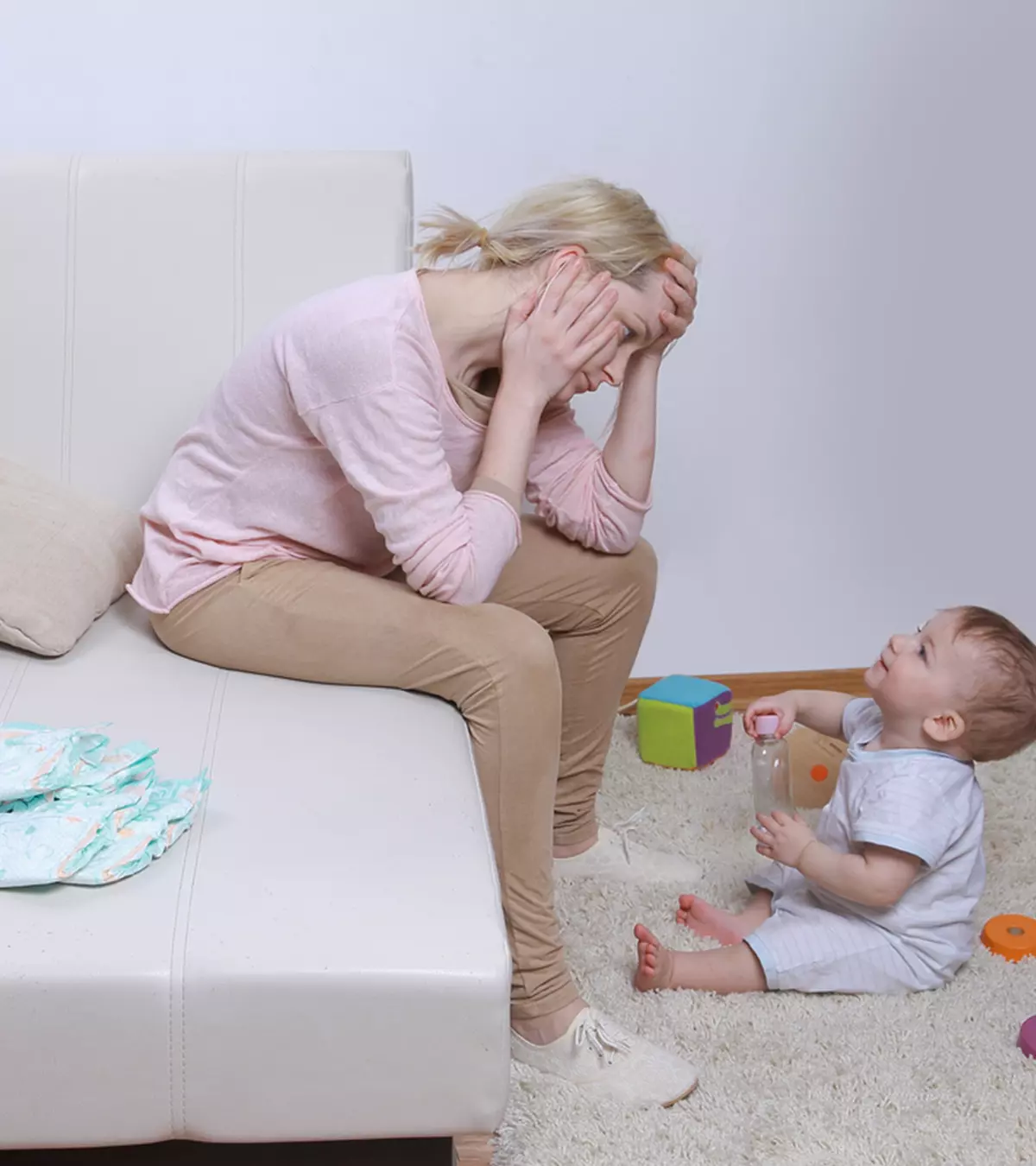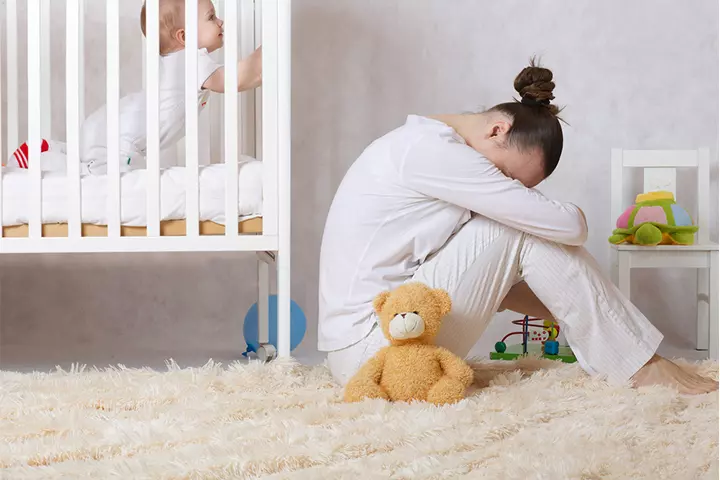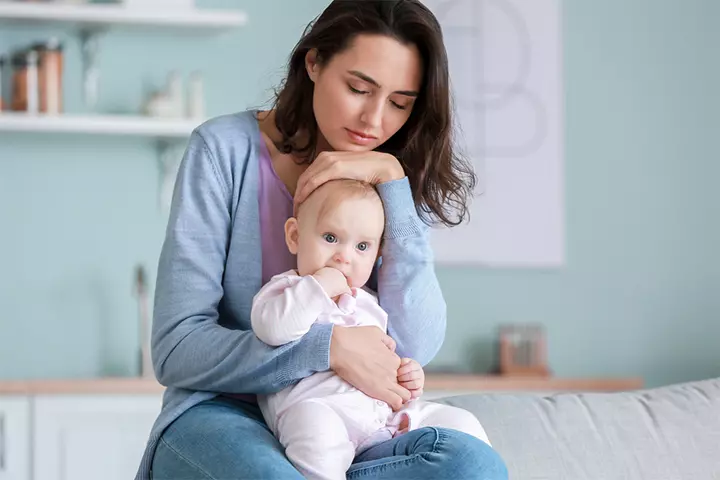
Image: Shutterstock
There’s a lot that’s said about pregnancy and what you should and shouldn’t do during those nine months. You’ve also probably read several books, magazines, mommy blogs, and what not to know how to take care of your little one after delivery. But have you gathered information about how to take care of yourself after giving birth? Probably not. But it’s imperative that you do it because if you’re not in your best health, it becomes difficult for you to take care of your baby, who is entirely dependent on you.
Apart from your physical health, which includes nutritious food, adequate rest, and sufficient water intake, you also need to take care of your mental health. Postpartum symptoms, like postpartum depression and anxiety, are common in many women, and it’s best to identify them sooner than later (1). When you’ve given birth, your levels of stress are naturally a tad higher than usual. It’s a common aftermath of giving birth. However, your worrying can be more than just that — it can be signs of postpartum anxiety.
But how do you know you’re experiencing postpartum anxiety, and how is it different from the normal worries that come with being a new mom? Scroll below to identify a few signs that could tell you if you have postpartum anxiety or if they are normal worries.
What Is Postpartum Anxiety?
Image: Shutterstock
To understand what the signs of postpartum anxiety are, first, let us look at what it means. Postpartum anxiety, usually coupled with postpartum depression, is a common disorder that mothers experience after giving birth (2). The delivery of a baby can trigger several jumbled emotions and leave you flushed with hormones that can alter your moods to a great extent. Commonly referred to as the “baby blues”, postpartum anxiety and depression are common after childbirth and do not make you any less of a mom. With proper treatment and care, you will be able to manage your symptoms effectively (3).
Signs And Symptoms Of Postpartum Anxiety
Image: Shteerstock
When you have your helpless newborn in your arms, you cannot help but feel overwhelmed with worry because you know you have to do your absolute best to take care of them. But could your worry be a result of postpartum anxiety?
If you’re feeling huge waves of loss, frustration, and guilt along with symptoms like excessive crying, hopelessness, insomnia, severe mood swings, intense irritability, and anger, you could be affected by postpartum anxiety and depression (4). You might also experience difficulty bonding with your baby or fear that you’re not a good mother. Consult your doctor and open up to them about how you’re feeling. You could also talk to your partner or a trusted friend or family member to help you take that step to visit your doctor.
What Should You Do?
Image: Shutterstock
It’s easy to mistake postpartum symptoms of depression and anxiety for normal worry because it’s hard to make a clear distinction. However, if you find it hard to carry out regular tasks and your energy levels are extremely low, we advise you to consult your doctor at the earliest.
Another way to cope with postpartum anxiety could be to be more consciously aware of your thoughts. When you find yourself spiraling with overwhelming emotions, try to take deep breaths. Pause for a few seconds and ask yourself this: Is the thought that you are having a productive one and something that is actually in your control?
If it is, you can talk to your partner and find a reasonable solution to the problem. But if it is not, identifying that your worries are far-fetched could help you calm down and prevent you from going down a rabbit hole.
The most important thing to remember is that you’re not alone, and it’s not your fault. You must refrain from blaming yourself. Consulting your doctor as soon as these symptoms begin will help you cope with them better. So don’t hesitate and make that call to your doctor. Have you experienced postpartum anxiety? Comment below and let us know how you handled it.















